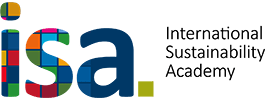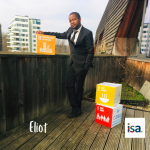WORLD WATER DAY
 If you had a clean glass of water today, you should be grateful for being privileged. Let me tell you why.
If you had a clean glass of water today, you should be grateful for being privileged. Let me tell you why.
The starting point of my project journey was a mapping field excursion accompanied by my classmates and teachers in Konso, which lasted for eighteen days. From early on we faced severe hardships regarding the quality and shortage of water in this region. Despite this challenging experience, I revisited the area, while working at Arba Minch University as a lecturer. The dire situation of water scarcity became a special mission in my heart because the Konso region is completely overlooked in terms of funding.
 In addition to that, I have never experienced the level of the hardship people have to go through just to survive on a daily basis – by finding water. Although Konso is known for broad tourism, no financial support was given to the communities, not only to improve the poor quality of the water but also to find proper wells for safe distribution of it. Finally, I decided to create a team of experts who developed a project proposal to investigate the quality and groundwater potential of the area. Arba Minch University finally accepted our project as part of the thematic fund because the university focuses on finding solutions to the urgent and emerging problems and demands of society that could be achieved through multidisciplinary research for the well-being of the nation.
In addition to that, I have never experienced the level of the hardship people have to go through just to survive on a daily basis – by finding water. Although Konso is known for broad tourism, no financial support was given to the communities, not only to improve the poor quality of the water but also to find proper wells for safe distribution of it. Finally, I decided to create a team of experts who developed a project proposal to investigate the quality and groundwater potential of the area. Arba Minch University finally accepted our project as part of the thematic fund because the university focuses on finding solutions to the urgent and emerging problems and demands of society that could be achieved through multidisciplinary research for the well-being of the nation.
 Water shortages and poor water quality in the area are especially harmful to women, children, and farmers. Women and girls typically spend hours on the tiresome task of carrying jerrycans of 50 litters for several hours per day. Females and children are in general more vulnerable to abuse, and assault along those long distances to find water, as well as prone to illness due to the absence of clean water, which has an impact on their capacity to learn, work, and live with dignity. These water sources expose the community to water-borne diseases, mainly diarrhoea, typhoid, and typhus. This has led to many health problems, especially among children. It is also important to point out the connection between female education and the inaccessibility of clean water, adequate latrines, and hygiene education. Women and girls who are menstruating skip work and school when they don’t have access to basic hygiene.
Water shortages and poor water quality in the area are especially harmful to women, children, and farmers. Women and girls typically spend hours on the tiresome task of carrying jerrycans of 50 litters for several hours per day. Females and children are in general more vulnerable to abuse, and assault along those long distances to find water, as well as prone to illness due to the absence of clean water, which has an impact on their capacity to learn, work, and live with dignity. These water sources expose the community to water-borne diseases, mainly diarrhoea, typhoid, and typhus. This has led to many health problems, especially among children. It is also important to point out the connection between female education and the inaccessibility of clean water, adequate latrines, and hygiene education. Women and girls who are menstruating skip work and school when they don’t have access to basic hygiene.  The prolonged lack of rain caused an acute water shortage, claiming thousands of livestock and prompting famine. Cases of severe malnutrition and deaths directly attributable to the drought are being reported from the various villages of the Konso area. In spite of all the life-threatening challenges above, there has not been enough aid forthcoming.
The prolonged lack of rain caused an acute water shortage, claiming thousands of livestock and prompting famine. Cases of severe malnutrition and deaths directly attributable to the drought are being reported from the various villages of the Konso area. In spite of all the life-threatening challenges above, there has not been enough aid forthcoming.
Water has a strong tie to the physical and spiritual well-being of humankind. Regardless of the differences in religion, culture, and social norms, every person depends on water.
According to the UN report 2020, access to safe drinking water has proven to be one of the most effective means of breaking the cycle and closing the gap between various populations. Because they are no longer expected to walk long distances to fetch water, girls and women are more likely to acquire an education and earn an income when water is available at home.  As a result, inequities are reduced. As a team, we are still working on the problems for two years however the problem found in the area is not solved yet because research result and publications cannot solve problems by themselves unless it is implemented with financial capacity. Therefore, for successful development and systems management, a gradual change and systematic approaches are required for joint effort, not only financially but also on a humanitarian level to improve the unbearable situations of the people in Konso.
As a result, inequities are reduced. As a team, we are still working on the problems for two years however the problem found in the area is not solved yet because research result and publications cannot solve problems by themselves unless it is implemented with financial capacity. Therefore, for successful development and systems management, a gradual change and systematic approaches are required for joint effort, not only financially but also on a humanitarian level to improve the unbearable situations of the people in Konso.
We look forward to your support.
By Abel Abebe



